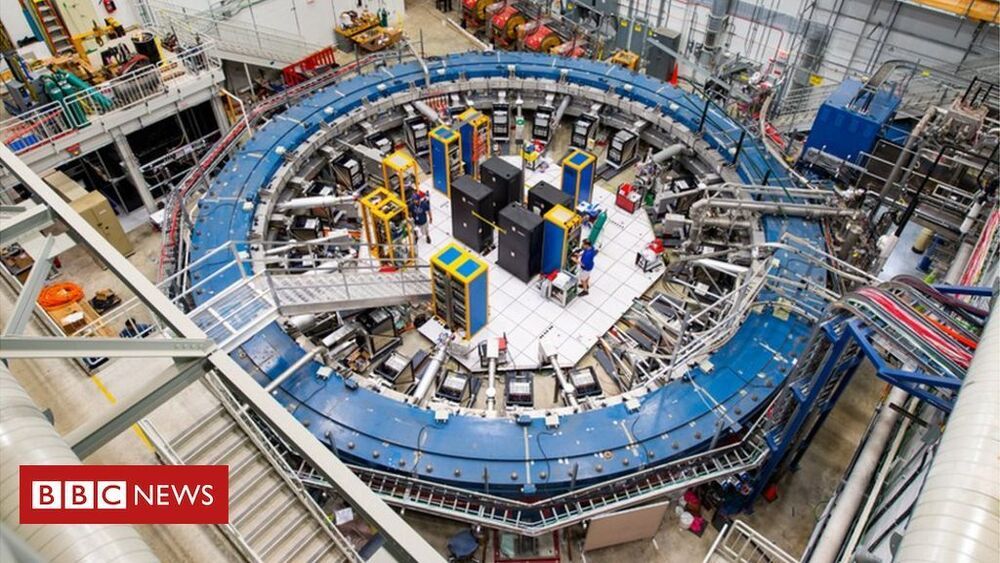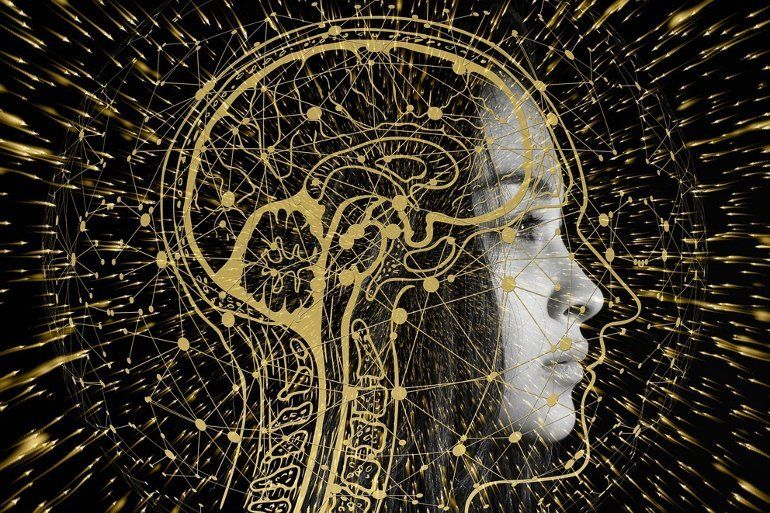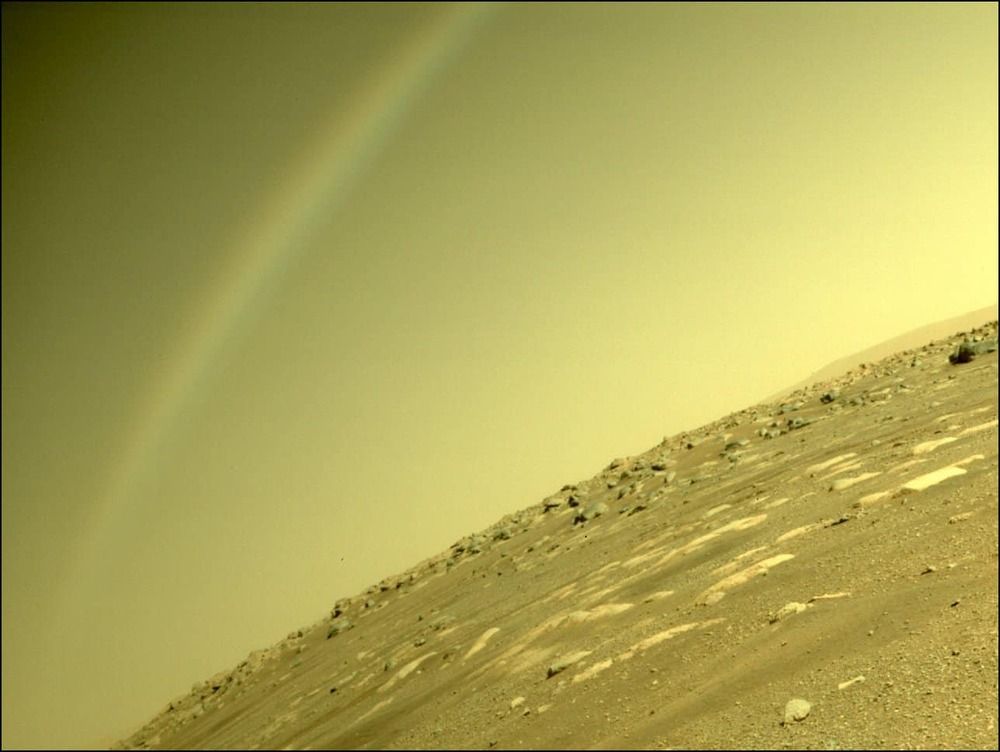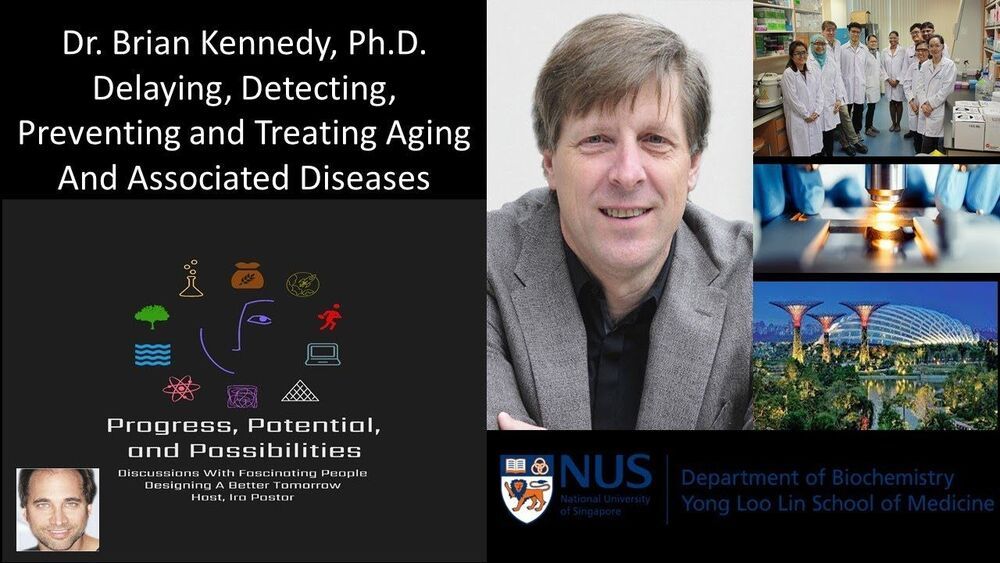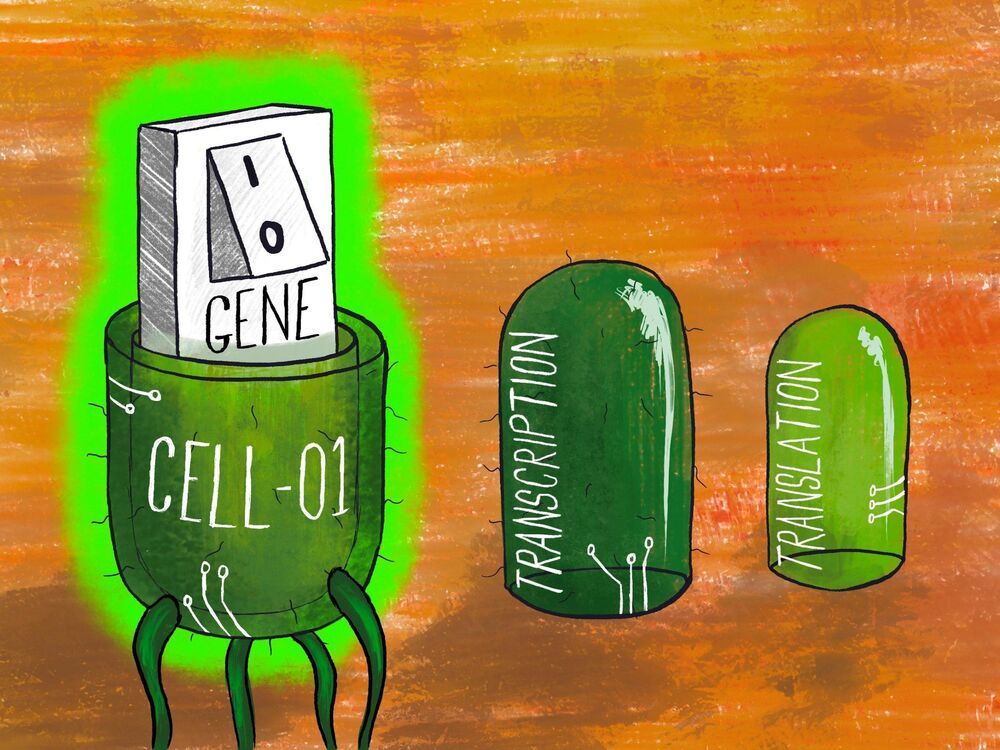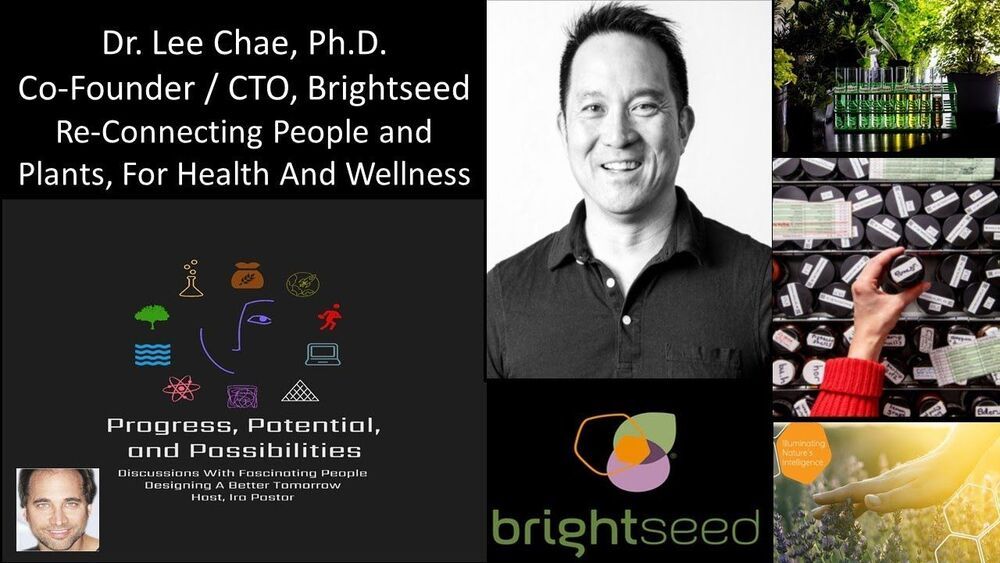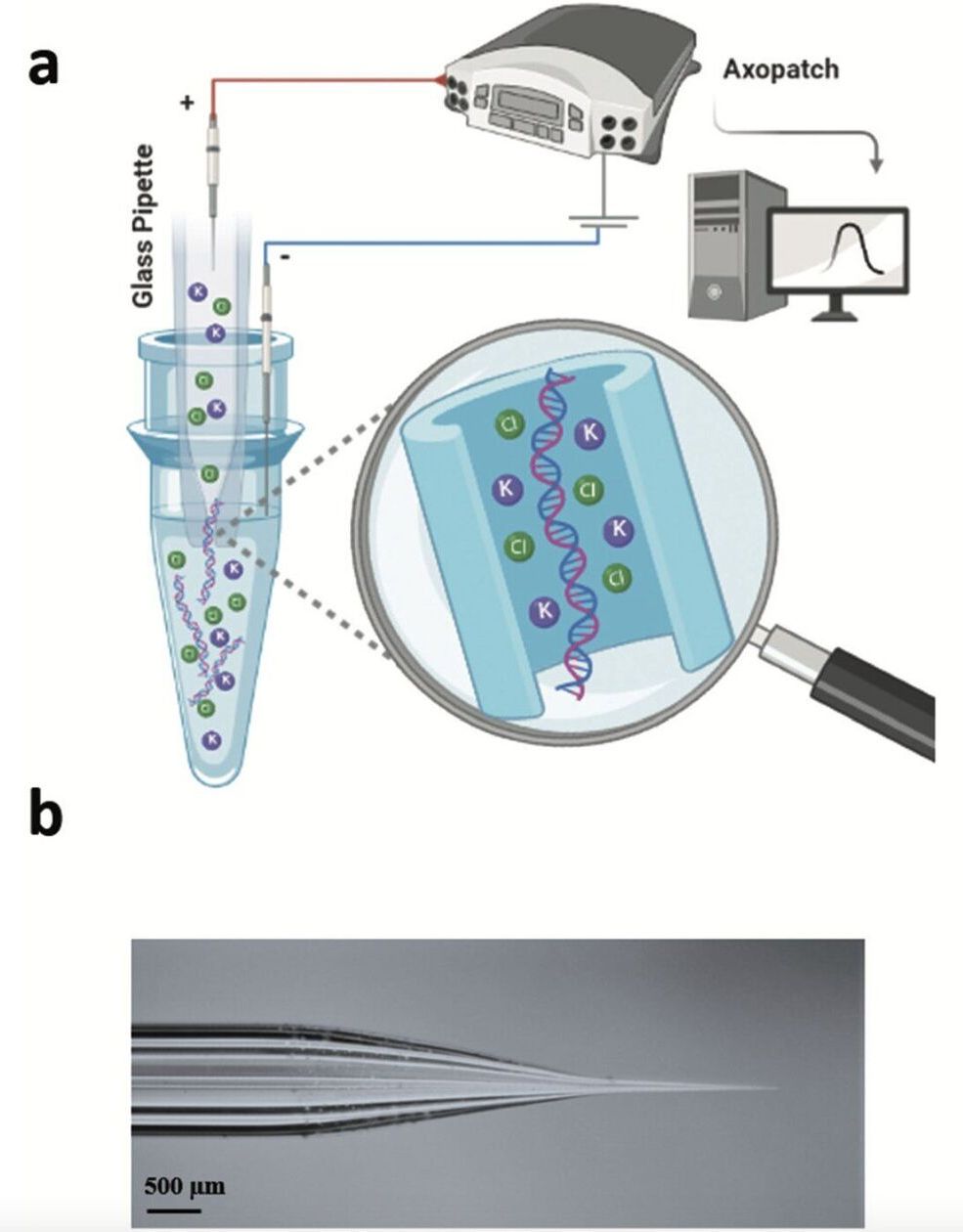Physicists may have just made a major breakthrough in our understanding of the Universe.
Summary: Combining artificial intelligence technology with brain scan data, researchers have identified three novel subtypes of multiple sclerosis.
Source: UCL
Scientists at UCL have used artificial intelligence (AI) to identify three new multiple sclerosis (MS) subtypes. Researchers say the groundbreaking findings will help identify those people more likely to have disease progression and help target treatments more effectively.
Renjiang Xie
Posted in space
Many have asked: Is that a rainbow on Mars? No. Rainbows aren’t possible here. Rainbows are created by light reflected off of round water droplets, but there isn’t enough water here to condense, and it’s too cold for liquid water in the atmosphere. This arc is a lens flare.
Delaying, Detecting, Preventing and Treating Aging And Associated Diseases — Dr. Brian Kennedy, Ph.D., National University of Singapore.
Dr. Brian Kennedy is Distinguished Professor, Department of Biochemistry and Physiology, Yong Loo Lin School of Medicine, National University of Singapore (NUS), Director of National University Health System (NUHS) Centre for Healthy Ageing, Singapore, Professor, Buck Institute for Research on Ageing, Adjunct Professor, Leonard Davis School of Gerontology, USC, and Affiliate Faculty, Department of Biochemistry, University of Washington.
With a Ph.D. in Biology from Massachusetts Institute of Technology (MIT), research in the Kennedy lab is directed at understanding the biology of ageing and translating research discoveries into new ways of delaying, detecting, preventing and treating human ageing and associated diseases.
Current research projects in Dr. Kennedy’s lab include systems biology strategies to understand ageing and murine longevity studies and disease models.
Dr. Kennedy has published over 80 manuscripts in prestigious journals including Cell, Nature, Science, Genes & Development, and PNAS and serves as a Co-Editor-In-Chief at Aging Cell.
You hear so much about the wonders of coffee, that I decided it was time to even the score.
Tea Is Fantastic.
I for one, am a massive fan of the humble cuppa, but now there seems to be method to my madness after all.
Whatever the type, it seems there are benefits galore.
So what are you waiting for…?
Put the kettle on!!
And if you want to find out more about how important sleep really is, why not check out this video next…
Elon Musk has given us his findings to why the SpaceX Starship SN 11 exploded above the landing pad.
I explore fixes from a system safety standpoint. See what I recommend.
You can support Galactic Gregs by supporting the sister channel Green Gregs by clicking the links below:
See the Special Deals at My Patriot Supply (great space mission food): www.PrepWithGreg.com.
For gardening in your space habitat (or on Earth) Galactic Gregs has teamed up with True Leaf Market to bring you a great selection of seed for your planting. Check it out: http://www.pntrac.com/t/TUJGRklGSkJGTU1IS0hCRkpIRk1K
In a recent study led by the University of Bristol, scientists have shown how to simultaneously harness multiple forms of regulation in living cells to strictly control gene expression and open new avenues for improved biotechnologies.
Engineered microbes are increasingly being used to enable the sustainable and clean production of chemicals, medicines and much more. To make this possible, bioengineers must control when specific sets of genes are turned on and off to allow for careful regulation of the biochemical processes involved.
Their findings are reported in the journal Nature Communications.
Using Artificial Intelligence And Plant Biology, To Re-Connect People and Plants, For Health & Wellness — Dr. Lee Chae, Ph.D., Co-Founder & CTO, Brightseed.
Dr. Lee Chae, Ph.D., is a Co-Founder and Chief Technology Officer at Brightseed, a novel life sciences company, merging the tools of plant biology and artificial intelligence, with a goal of enabling a healthier future by re-illuminating and re-activating the connections between people and plants.
Dr. Chae is a seasoned R&D technology developer and has designed advanced discovery methodologies for food technology, agricultural biotech, bio-medicine, and synthetic biology. He has been a principal scientist of multiple discoveries, including machine-learning driven discovery of novel nutritional bio-actives in plants and computationally guided identification of plant-based proteins for food.
With as Ph.D in Plant Biology, Computational and Genomic Biology, from University of California, Berkeley, Dr. Chae was also a founding member of the Quantitative Biosciences Institute, and did Post-Doctoral Research at the Carnegie Institution at Stanford.
Prior to Brightseed, Dr. Chae served as the VP of R&D at Hampton Creek, a company developing and marketing plant-based alternatives to conventionally-produced food products.
Research led by UC Riverside is making it easier to detect and capture DNA from fluid samples such as blood using a tiny glass tube and electric current. The technique, described in the journal Nanoscale, can also improve cancer diagnosis in the future.
DNA, a double-stranded, electrically charged molecule that contains all the information an organism needs to create and organize the building blocks of life, is tightly folded within the cell nucleus. Extracting the DNA from a single cell is time consuming and impractical for many medical and scientific purposes. Fortunately, as cells die naturally, their membranes burst, releasing the contents, including DNA. This means that a blood sample, for example, contains many strands of free-floating DNA that should, in theory, be easier to identify and extract in quantity.
HELSINKI — Guangzhou is developing a major space cluster in the city by hosting new projects including the new headquarters for the space business of Geely Technology Group.
Geely, a major automaker which owns Volvo Cars and part of Daimler AG, is to establish a space headquarters in Nansha district to oversee development of its satellite and communications technologies, local government said March 30.
Geely is developing a low Earth orbit constellation for navigation, connectivity and communications needed for self-driving cars. The group recently gained approval to begin manufacturing satellites.
